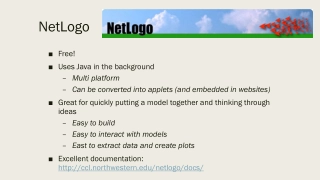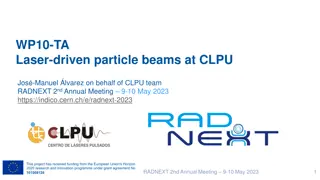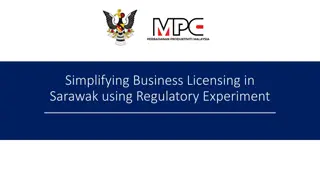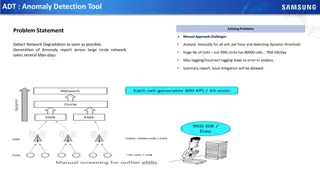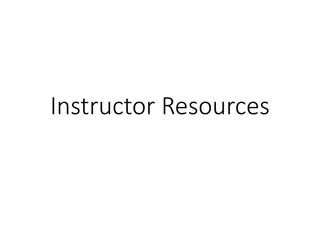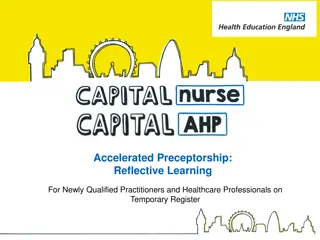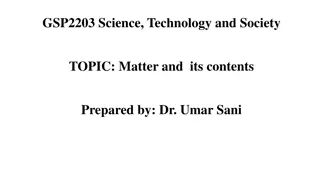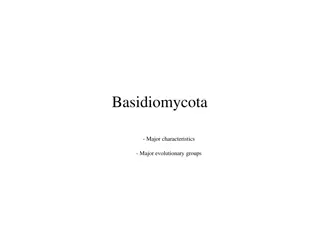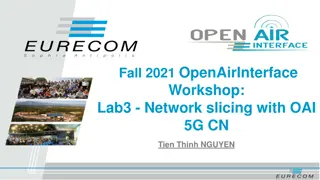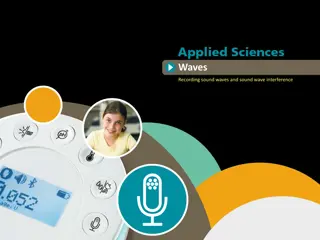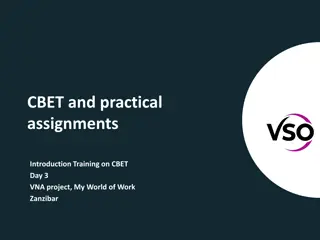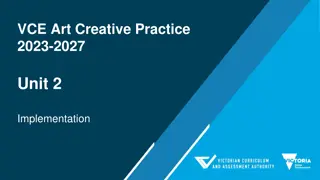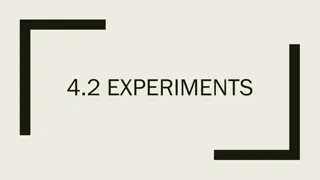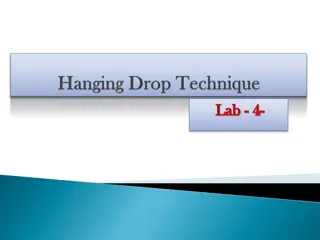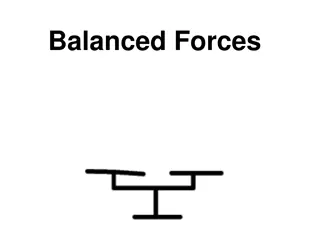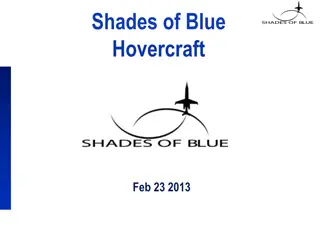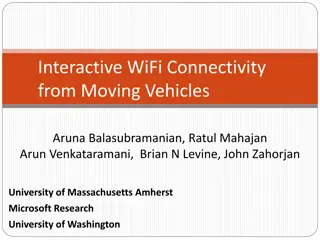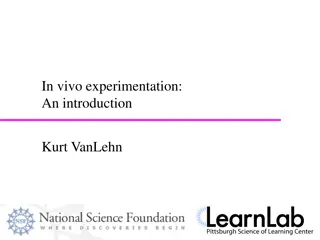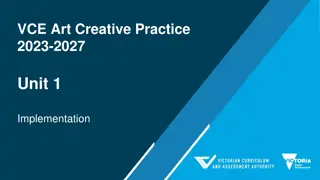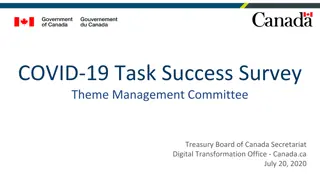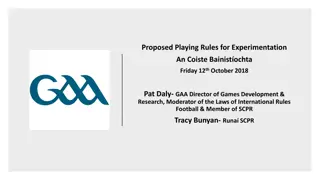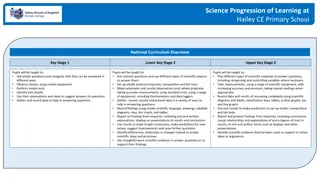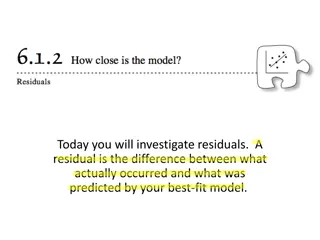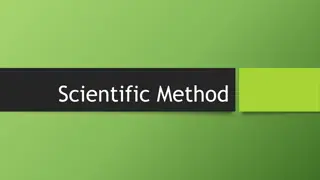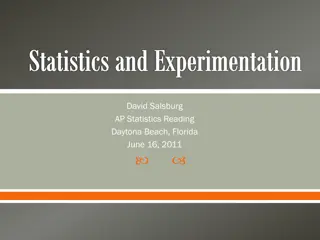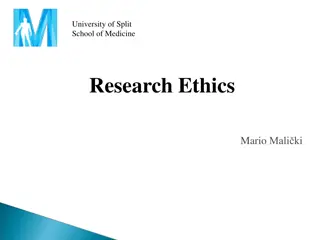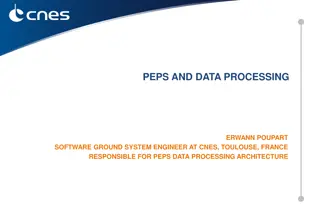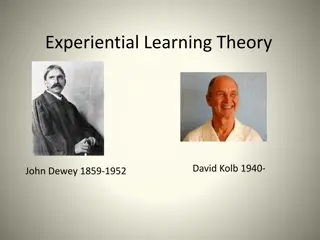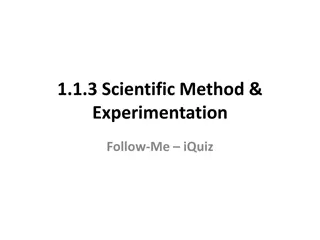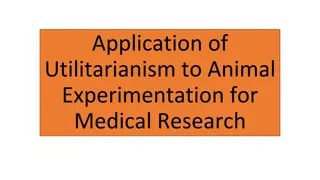NetLogo: Building and Interacting with Models
Free platform using Java, with the option to convert into applets. Excellent for model building, data extraction, and quick idea experimentation. Easy to use, interact, and extract data.
0 views • 36 slides
Generative AI: What should governments in Latin America do?
Specific measures for governments in Latin America to navigate the complexities of generative AI, focusing on ongoing policy implementation, ethical considerations, regulatory experimentation, and key areas of work in the region.
7 views • 7 slides
Understand the Process, Stages, and Types of Research Design
The process of research design involves interactive stages that occur simultaneously, leading to the classification of research design into exploratory, descriptive, and experimental types. Each type serves a unique aim, from understanding problems to testing hypotheses through structured experiment
3 views • 8 slides
Engineering as Social Experimentation: Importance and Learnings
Engineering as social experimentation involves engineers conducting experiments and tests at various stages of product or process design to evaluate outcomes and make necessary modifications. This process is crucial for innovation and improvement in the field of engineering, emphasizing the importan
0 views • 50 slides
Laser-Driven Particle Beams at CLPU: Insights from the RADNEXT 2nd Annual Meeting
Delve into the world of laser-driven particle beams at CLPU as discussed in the RADNEXT 2nd Annual Meeting. Explore topics like high-intensity laser facilities, laser plasma accelerator applications, and the innovative use of Laser VEGA for transnational access. Witness the evolution of laser physic
1 views • 29 slides
Streamlining Business Licensing in Sarawak through Regulatory Experimentation
This initiative in Sarawak focuses on simplifying the business licensing process through regulatory experiments aimed at reducing regulatory burdens and improving the overall business ecosystem. By implementing innovative strategies such as risk-based approvals and composite licenses, the goal is to
0 views • 7 slides
Virtual Labs on SDN and P4 Programmable Switches
Explore the motivation behind Software-Defined Networking (SDN) and P4 programmable switches, highlighting the shift from traditional networking to more flexible and innovative approaches. Understand how SDN challenges protocol ossification, separates control and data planes, and enables packet-forw
2 views • 47 slides
Automated Anomaly Detection Tool for Network Performance Optimization
Anomaly Detection Tool (ADT) aims to automate the detection of network degradation in a mobile communications network, reducing the time and effort required significantly. By utilizing statistical and machine learning models, ADT can generate anomaly reports efficiently across a large circle network
8 views • 7 slides
Reimagining Blended Learning: Making Space for Transformation
Blended learning faces challenges such as overcrowded campuses and exhausted staff but can evolve through active, pedagogical spaces, stakeholder communication, and staff-student partnerships. The solution lies in creating spaces for care, reflection, experimentation, and dialogue to explore new ped
0 views • 6 slides
Instructor Resources
Explore the world of Arduino microcontrollers through an engaging activity aimed at building a scientific instrument to measure temperature. The detailed outline covers parts, functions, and where to source supplies. Learn about the versatile Arduino platform, its inputs, outputs, and programming la
4 views • 16 slides
Understanding Reflective Learning for Healthcare Professionals
Reflective learning is an essential tool for healthcare practitioners, allowing for the critical analysis of experiences to facilitate deeper understanding and growth. This practice involves looking back, learning from past experiences, and finding new ways to enhance skills and confidence. Kolb's L
2 views • 19 slides
Understanding the Scientific Method in Measurements and Calculations
Explore the scientific method in detail, including observing, collecting data, formulating hypotheses, testing hypotheses, and formulating theories with practical examples. Understand the importance of experimentation and how it leads to the development of scientific theories. Engage in activities t
6 views • 43 slides
Exploring Shadows: Light Activities for Science Education
Discover the fascinating world of shadows with engaging activities in this science lesson. Learn how shadows are formed, go on a shadow hunt, and experiment with changing shadow shapes. Explore key vocabulary, ask thought-provoking questions, and conduct hands-on investigations to deepen understandi
0 views • 20 slides
Exploring Modernism in Literature and Beyond
Modernism in literature emerged as a groundbreaking international movement in the early 20th century, challenging traditional norms and exploring new forms of expression. This movement, characterized by experimentation and a rejection of absolute knowledge, extended beyond literature into various fi
0 views • 17 slides
Understanding Matter: Exploring the Foundations of Science
Science is a systematic pursuit of knowledge that evolves through observation, hypothesis, experimentation, theory, and law. Scientists are inquisitive individuals who analyze patterns, solve problems, and test their ideas with experiments. The scientific realm is divided into natural sciences (e.g.
0 views • 19 slides
Evolutionary Insights of Basidiomycota Dikaryons
Basidiomycota, a successful fungal group with 30,000 known species, predominantly exhibits filamentous vegetative growth while also producing yeast forms. The multi-layered cell wall and regularly septate hyphae with dikaryotic mycelium are key characteristics. Recent experimentation on Schizophyllu
0 views • 20 slides
Network Slicing with OAI 5G CN Workshop Overview
Overview of Network Slicing with OAI 5G CN workshop focusing on the crucial role of network slicing in realizing the service-oriented 5G vision. This workshop covers topics like multiple logical networks creation on shared infrastructure, different types of network slices, preparation and instantiat
1 views • 6 slides
ChildFund's Pathways Portfolio for Scaling Impact on Children's Well-being
ChildFund aims to scale its impact on children by adding new methods, evolving international development roles, and strengthening core programs. The organization's roadmap includes structured experimentation in high-potential business models, advocacy, digital strategies, and program expansion, all
0 views • 7 slides
Understanding Sound Waves and Interference through Experimentation
This activity involves studying sound waves generated by two tuning forks to create a hypothesis tested with a microphone sensor. Students explore wave behavior, classification, and interaction through hands-on experiments, enhancing their theoretical knowledge and practical understanding of wave ph
0 views • 35 slides
Training on Competence-Based Education and Practical Assignments
Dive into a comprehensive training program focused on Competence-Based Education (CBE) and practical assignments in Zanzibar. Explore topics such as designing practical assignments, feedback processes, lesson design shifts, and more. Reflect on your experiences and collaborate with colleagues to enh
0 views • 15 slides
Exploring VCE Art Creative Practice: Research, Experimentation, and Development
Delve into the components of VCE Art Creative Practice including research, exploration of ideas and influences, experimentation with materials and techniques, and development of artworks. Discover how artists creatively express personal, cultural, and social influences through visual language and in
0 views • 55 slides
Understanding Experiments in Research: Observation vs. Experimentation
Observation and experiments are two crucial methods in research. An observational study involves observing and measuring variables without influencing responses, while an experiment deliberately applies treatments to measure responses. Confounding variables can affect the results, and factors like e
0 views • 13 slides
Microbiology Lab: The Hanging Drop Preparation
Learn how to prepare living microorganisms for microscopic study using the hanging drop technique. This method involves suspending microorganisms in a fluid and creating a hanging drop on a hollow ground slide, allowing for observation of morphology and motility. Follow step-by-step procedures to ma
0 views • 17 slides
Understanding Moments and Forces in Physics
Explore the concepts of balanced forces, levers, pivots, and moments in physics through practical experimentation. Dive into the principles behind levers, moments, and unbalanced systems while learning about weight versus mass and calculating moments in various scenarios.
1 views • 21 slides
Understanding Hovercrafts: Principles, Experiments, and Applications
Explore the fascinating world of hovercraft technology through detailed explanations, experiments, and insights on how these vehicles work. From the basic concepts and terms to practical experiments you can try at home, uncover the science behind hovercrafts and their versatile capabilities. Dive in
0 views • 17 slides
Enhancing WiFi Connectivity for Moving Vehicles
This research explores the feasibility of using WiFi technology to enable network access from moving vehicles, focusing on improving performance for mainstream applications. The study includes a measurement analysis in a vehicular WiFi setting, comparing different handoff policies to enhance applica
0 views • 28 slides
Overview of In Vivo Experimentation in Educational Research
This introduction to in vivo experimentation by Kurt VanLehn covers the motivation and definition of in vivo experiments, examples, distinguishing features from other experiments, and popular experimental methods like laboratory and classroom experiments. The content addresses the need for external
0 views • 46 slides
Exploring the Creative Practice in VCE Art: Research, Experimentation, and Development
Dive into the world of VCE Art Creative Practice with a focus on research, experimentation, and development. Discover how artists explore and interpret personal, cultural, and social influences through visual language. Uncover the process of researching ideas, materials, and techniques, as well as e
0 views • 41 slides
COVID-19 Task Success Survey: Experimentation and Results Analysis
Task success survey conducted during the COVID-19 pandemic to assess visitor tasks and satisfaction levels. Phases included survey design assessment and ongoing refinement. Experimentation with variations revealed insights on the impact of asking about satisfaction first, completion rates, and corre
0 views • 22 slides
Proposed Playing Rules for Experimentation by SCPR - Historical Perspective and Principles
Experimentation and proposal of playing rules by the SCPR, focusing on fairness, skill enhancement, player responsibility, and spectator engagement. Historical perspective of rule changes in Gaelic Football highlighted from 1990 to 2016.
0 views • 11 slides
Science Progression of Learning at Hailey CE Primary School Overview
This curriculum overview outlines the scientific learning progression for pupils at Hailey CE Primary School across Key Stage 1, Lower Key Stage 2, and Upper Key Stage 2. It details the development of scientific skills and knowledge, from asking simple questions and making observations to planning a
0 views • 11 slides
Investigating Residuals in Packaging Experimentation
Explore the concept of residuals by analyzing a cereal packaging experimentation conducted by Battle Creek Cereal. Understand how residuals indicate the variance between actual and predicted values. Delve into scenarios where residuals are large or small, interpreting their significance in practical
0 views • 9 slides
Understanding the Scientific Method and Its Application in Science
Science, derived from the Latin word for knowledge, is a blend of reasoning and factual information. It hinges on observation, experimentation, and the quest for natural explanations. There are no absolute truths in science; our comprehension of nature stems from observation. Two primary scientific
0 views • 27 slides
Experimentation and Results in Statistics: Lessons from Past Studies
The content discusses historical experiments in statistics, focusing on the mistakes and outcomes of studies like the Lanarkshire Milk Study. It showcases how experiments can go astray due to factors like inadequate sampling, measurement biases, and human intervention. The narrative emphasizes the i
0 views • 27 slides
Exploring Research Ethics in Human Experimentation and History of Bioethics
Delve into the complexities of research ethics, focusing on human and animal experimentation, environmental ethics, and publication ethics. Learn about the critical evaluation of dilemmas in research, research integrity, and the moral code of academia. Understand the definition of research with huma
0 views • 41 slides
Effective Strategies to Prevent Teen Drug Use
This content emphasizes the importance of starting conversations about drug use with teens at a young age, as statistics show that experimentation typically begins around the age of 12. It also highlights the impact of parental behavior on teens' choices and suggests redirecting teens towards their
0 views • 32 slides
Insight into PEPS Data Processing Architecture by Erwann Poupard
Erwann Poupard, a Software Ground System Engineer at CNES, Toulouse, France, plays a crucial role in the PEPS data processing architecture. The outline covers PEPS HPSS data storage statistics, current data processing trends, and future plans including PEPS V2 development. Explore PEPS processing ch
0 views • 8 slides
Understanding Experiential Learning Theory and its Applications
Experiential Learning Theory, developed by David Kolb and influenced by John Dewey, emphasizes the role of experience in learning. It consists of four modes - Concrete Experience, Reflective Observation, Abstract Conceptualization, and Active Experimentation - forming a continuous learning cycle. Th
1 views • 10 slides
Understanding the Scientific Method and Experimentation
This interactive quiz explores the scientific method and experimentation process, including formulating hypotheses, conducting experiments, and analyzing results. It highlights key concepts such as hypothesis development, testing, and publishing results. Test your knowledge and deepen your understan
1 views • 50 slides
Ethics of Animal Experimentation in Medical Research
Exploring the application of utilitarianism to animal experimentation for medical research, this content delves into the history of vivisection, animal rights activism, and the work of historical figures like Claudius Galen in advancing medical understanding through dissection. The ethical considera
0 views • 17 slides
